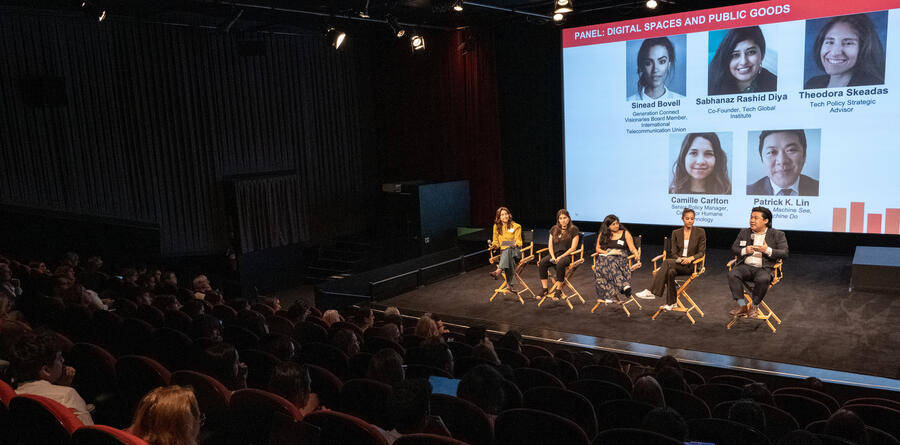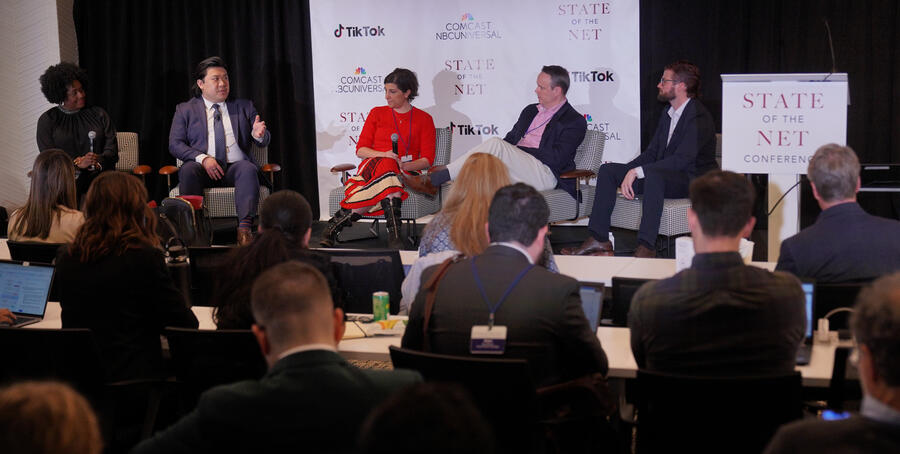Patrick K. Lin
Patrick K. Lin is an attorney and Clinical Teaching Fellow at NYU School of Law, where he co-teaches the Technology Law & Policy Clinic and the Science, Health & Information Clinic. He is also a Fellow at NYU's Engelberg Center on Innovation Law & Policy.Patrick's clinical work and research focuses on privacy, copyright law, consumer protection, and the intersection of technology and civil rights. He is the author of Machine See, Machine Do, a book about how institutions use technology to surveil, police, and make decisions about the public, as well as the historical biases that impact that technology. Before joining NYU, he was a Technology & Human Rights Fellow at the Harvard Carr-Ryan Center for Human Rights Policy and clerked for a district judge of the U.S. District Court for the Southern District of New York.Patrick has extensive experience in litigation and policy, having worked for the ACLU, FTC, EFF, and other organizations that advocate for digital rights and civil rights. He is also a frequent speaker on AI, the history and politics of surveillance, and technology regulation. Patrick has presented before a wide range of professional and academic groups, including Stanford University, State of the Net, Cloudflare TV, and various podcasts. Patrick writes about developments in technology, law, and policy in his newsletter, Tech Support.He received his J.D., cum laude, from Brooklyn Law School and B.A. in Economics from NYU.
If you would like Patrick to speak to your organization or at an event,
please use the form below.
Machine See, Machine Do is available at:

Select Events & Speaking Engagements
De-humanizing Care: Privacy, Bias & AI in Health Systems, PubHealthAI Collaborative Network (Jan. 2026).
Beyond Copyright: Ethical Considerations of Generative AI, Center for Art Law, Sept. 2025 (New York, NY).
Navigating the Legal Landscape: Contracts and Copyright Essentials, American Photography Archives Group, Mar. 2024 (New York, NY).
AI, Labor & the Arts, Brooklyn Law School Art Law Association, Nov. 2023 (New York, NY).
Through the Schoolhouse Gate: Students' Rights & Free Speech at School, Garden State Scholastic Press Association, Oct. 2023 (New Brunswick, NJ).
Digital Spaces & Public Goods, All Tech Is Human: Responsible Tech Summit, Sept. 2023 (New York, NY).
Intergenerational Youth Roundtable: Responsible AI, All Tech Is Human, May 2023 (New York, NY).
From Model Minority to Affirmative Action: The History of AAPI Student Activism and the Students for Fair Admissions v. Harvard Case,” Forward Financing, May 2023 (Virtual).
Generative AI: What Powerful New Tools Mean for Washington . . . and Homework, State of the Net Conference, Mar. 2023 (Washington, D.C.).
Legislating the Metaverse, Internet Law & Policy Foundry, Sept. 2022 (Virtual).
In the Loop: Human Error in the Deployment of Lethal Autonomous Weapon Systems, New York County Law Association: National/Cyber Security CLE Webinar, Dec. 2021 (Virtual).
Breaking into Responsible Tech, All Tech Is Human: Responsible Tech Summit, Dec. 2021 (Virtual).
Machine See, Machine Do: How Algorithms Mirror Discriminatory Police Practices, NYU A BETTER TECH: Public Interest Technology Convention, Oct. 2021 (Virtual).

Select Press & Appearances
Facial Recognition Technology, Explained, Built In, written by Ellen Glover, Feb. 2024.
Legal Decisions are Being Codified and the Models are Perpetuating Historical Biases, Technically Biased, interviewed by Krystyn Gutu, Dec. 2023.
What the FTC Investigation Into OpenAI Means for the Future of AI, Built In, written by Ellen Glover, Aug. 2023.
AI Bill of Rights: What You Should Know, Built In, written by Ellen Glover, June 2023.
AI Remains Unchecked: A Conversation with Patrick K. Lin, Public Seminar, written by Miko Yoshida, Mar. 2022.
Interview with Author of Machine See, Machine Do: How Technology Mirrors Bias in Our Criminal justice System, Cloudflare TV, Jan. 2022.
Publications
Who Gets to Be Biased? How AI Supply Chains Overrepresent the West and Marginalize the Rest (written with Alexander Puutio), Oxford Intersections: AI in Society (2025).
First Come, First Hired? ChatGPT’s Bias for The First Resume It Sees and the Cost for Candidates to Overcome Bias in AI Hiring Tools (written with Alexander Puutio), MIT Computational Law Report (2025).
Retrofitting Fair Use: Art & Generative AI After Warhol, 64 Santa Clara Law Review 467 (2024).
Fair’s Fair: How Public Benefit Considerations in the Fair Use Doctrine Can Patch Bias in Artificial Intelligence Systems, 11 Indiana Journal of Law & Social Equality 229 (2023).
Data Intermediaries: Fourth Amendments, Third Parties, Second Chances, and First Principles (written with Jonathan Askin, Brian Fischer, and Kristin Kuraishi), MIT Computational Law Report (2023).
The Cost of Training a Machine: Lighting the Way for a Climate-Aware Policy Framework that Addresses Artificial Intelligence’s Carbon Footprint Problem, 34 Fordham Environmental Law Review 1 (2023).
How to Save Face & the Fourth Amendment: Developing an Algorithmic Accountability Industry for Facial Recognition Technology in Law Enforcement, 33 Albany Law Journal of Science & Technology 189 (2023).
Select Comments & Briefs
Amicus Brief on the California Age-Appropriate Design Code in NetChoice v. Bonta, U.S. Court of Appeals for the Ninth Circuit, written with Juyoun Han on behalf of Fairplay, Center for Digital Democracy, Arturo Béjar, Frances Haugen, et al., submitted Dec. 2023.
Comment from the Center for Art Law in Response to Request for Comments on Artificial Intelligence and Copyright, United States Copyright Office (Docket No. 2023-6), written with Atreya Mathur and Irina Tarsis, submitted Oct. 2023.
Comment Regarding the Public Oversight of Surveillance Technology (POST) Act, New York Police Department (Int 0487-2018), written with Juyoun Han, submitted Feb. 2021.
Select Op-Eds & Popular Writing
Staring Back at the Panopticon: Resisting Tech Cronyism Under Trump 2.0, Harvard Carr Center for Human Rights Policy's Notes from the New Frontier of Power Series, Feb. 2025.
NY’s AI Policy Falls Short On Surveillance, Tech Policy Press, Mar. 2024.
OpenAI Investigation Puts AI Companies on Notice, The Regulatory Review, Sept. 2023.
The MTA’s Switch to OMNY Will Cost New Yorkers More Than Just Their Privacy, Surveillance Technology Oversight Project Blog, Oct. 2022.
The White House's AI Bill of Rights Has Bark—but Where’s the Bite?, Tech Support, Oct. 2022.
How Data Privacy May Be Affected If Roe v. Wade Is Overturned, Tech Policy Press, June 2022.
Left to Their Own Devices: The Metaverse Is Not Being Built for You, Tech Policy Press, May 2022 (mentioned in Digital Bridge, Politico's weekly transatlantic tech newsletter).
Toxic Spaces: How Environmental Justice and Criminal Justice Intersect, Fordham Environmental Law Review Blog, Oct. 2021.
Control+Art+Delete: How does Social Media Content Moderation Affect Artists?, ArtAsiaPacific, written with Juyoun Han, May 2021.
Does Artificial Intelligence Impact Hiring People with Disabilities?, ABILITY Magazine, written with Juyoun Han, Nov. 2020.
Get In Touch
Please complete this form to contact Patrick for media, research, writing, consulting, and speaking inquiries.Patrick has given speeches, presentations, and keynote addresses at universities, law schools, corporations, and conferences, including Stanford University, NYU, UNC School of Law, Center for Art Law, Cloudflare TV, State of the Net, All Tech Is Human, and more — spanning audiences from all over the globe and from diverse professional, academic, and cultural backgrounds.
© 2025 by Patrick K. Lin. All rights reserved.